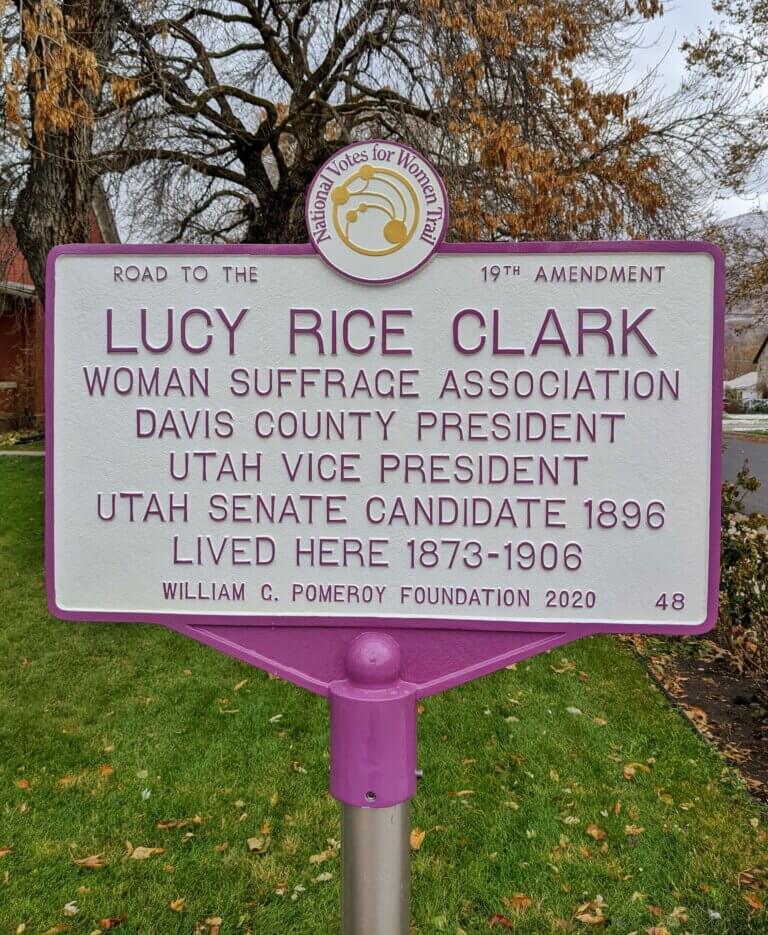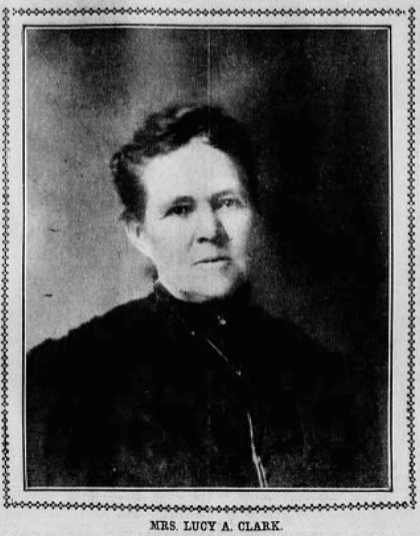LUCY RICE CLARK
- Program
- Subject
- Location
- Lat/Long
- Grant Recipient
-
National Votes for Women Trail
-
People
- State Street @ 222 W, Farmington, UT 84025, USA
- 40.98062, -111.892093
-
National Collaborative for Women's History Sites
LUCY RICE CLARK
Inscription
LUCY RICE CLARKWOMAN SUFFRAGE ASSOCIATION
DAVIS COUNTY PRESIDENT
UTAH VICE PRESIDENT
UTAH SENATE CANDIDATE 1896
LIVED HERE 1873-1906
WILLIAM G. POMEROY FOUNDATION 2020
Lucy Augusta Rice Clark (1850-1928) was a suffrage leader in Davis County, Utah and was active in suffrage work at the state level from 1887 to 1896, when Utah women were disenfranchised and fought to get back their right to vote.
The Utah Territory had made history in 1870 when it became one of the few places in the United States where women had the right to vote. However, in 1887, Utah women lost the right to vote under the Edmunds-Tucker Anti-Polygamy Act, passed by the United States Congress. The act targeted Mormon communities that practiced polygamy in the Utah Territory, placing restrictions on the practice. It also took away voting rights from all women in the Utah Territory, both Mormon and non-Mormon.
Clark lived in her home on West Street in Farmington, Utah from 1873 to 1906. During her time living in Farmington, Clark served as president of the Davis County Woman Suffrage Association and vice president of the Utah Woman Suffrage Association. When the Utah Territory applied for statehood in 1895, suffragists advocated that women’s suffrage be included in the new state constitution. When Utah achieved statehood the following year, Utah women once again had the right to vote. Clark was one of three female candidates for the Utah State Senate in the 1896 election, the first in which Utah women could run for office. Although she was defeated, she was appointed postmaster of Farmington shortly afterward. In 1900, while serving as vice president of the Utah State Council of Women, she was a delegate to the national suffrage convention in Washington, D.C. and testified before a Senate committee to encourage nationwide suffrage for women.



